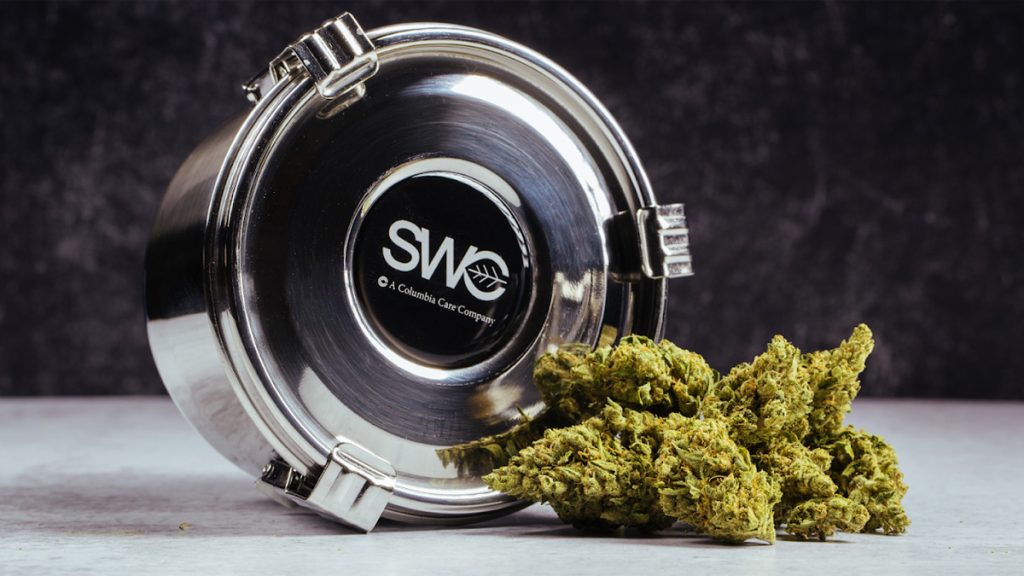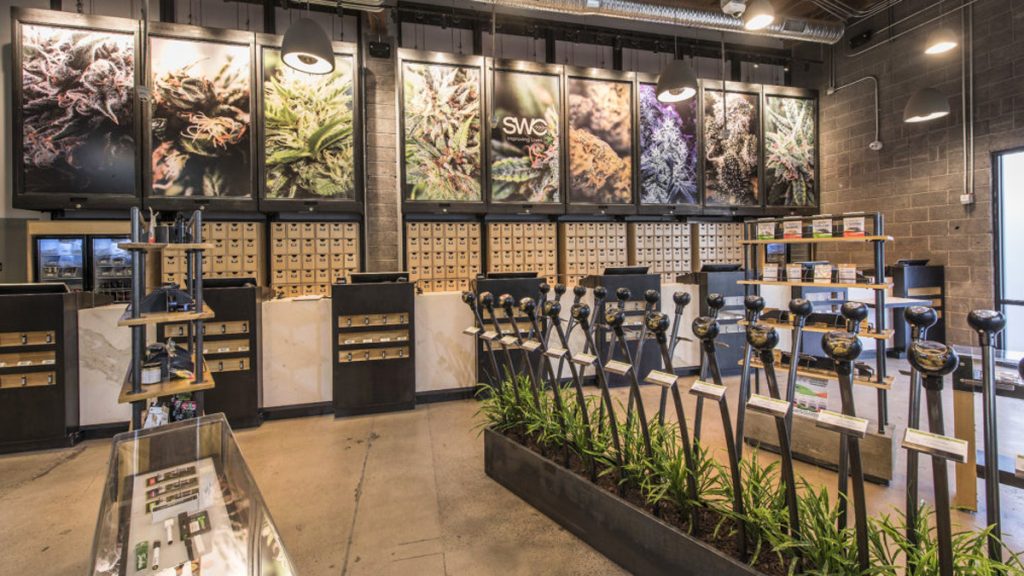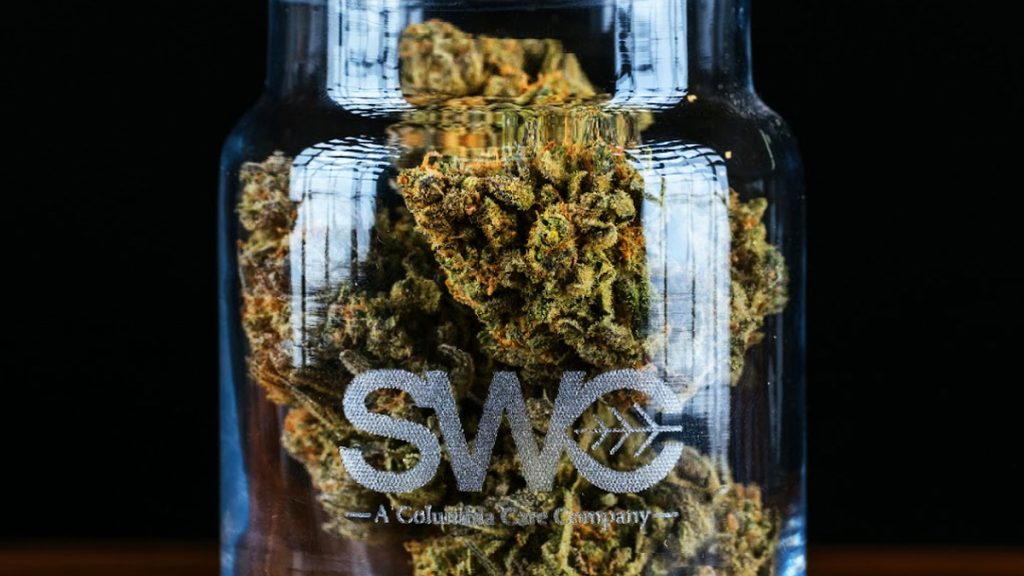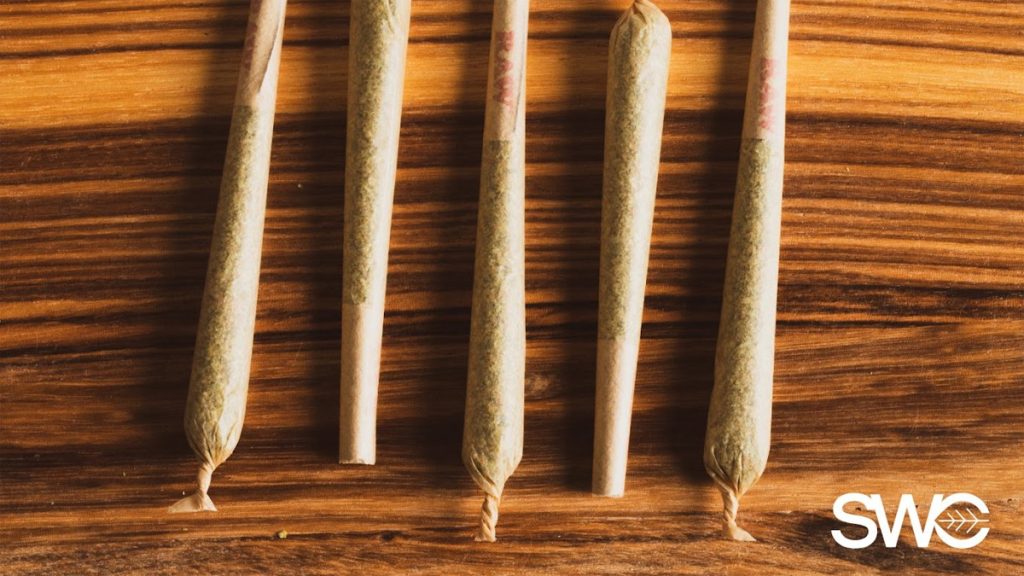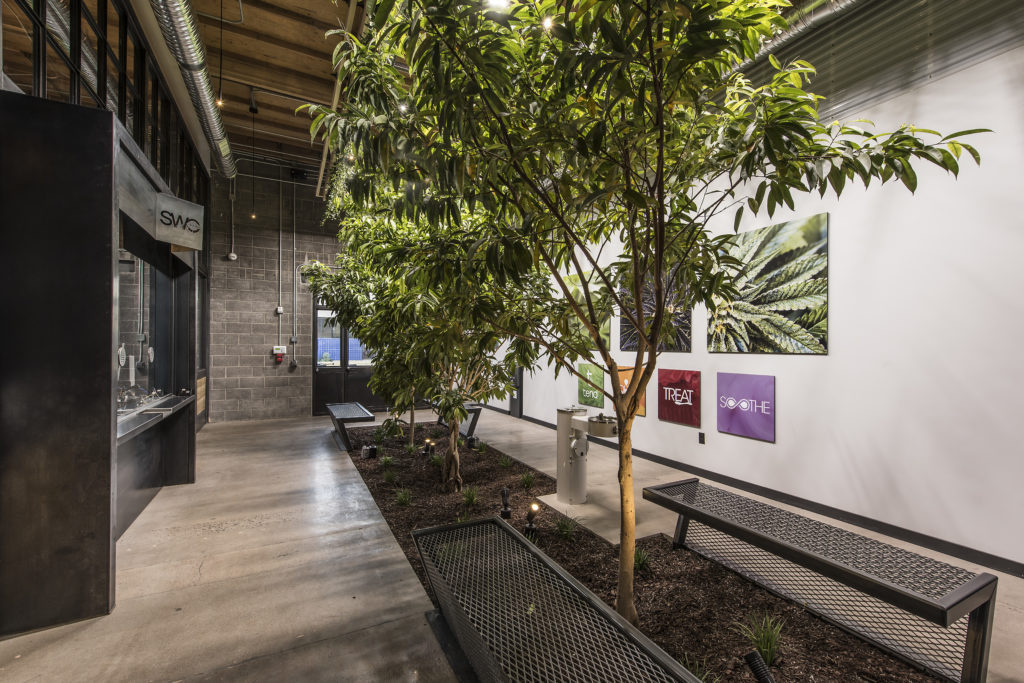Does Weed Help With Sleep? Relief & Benefits
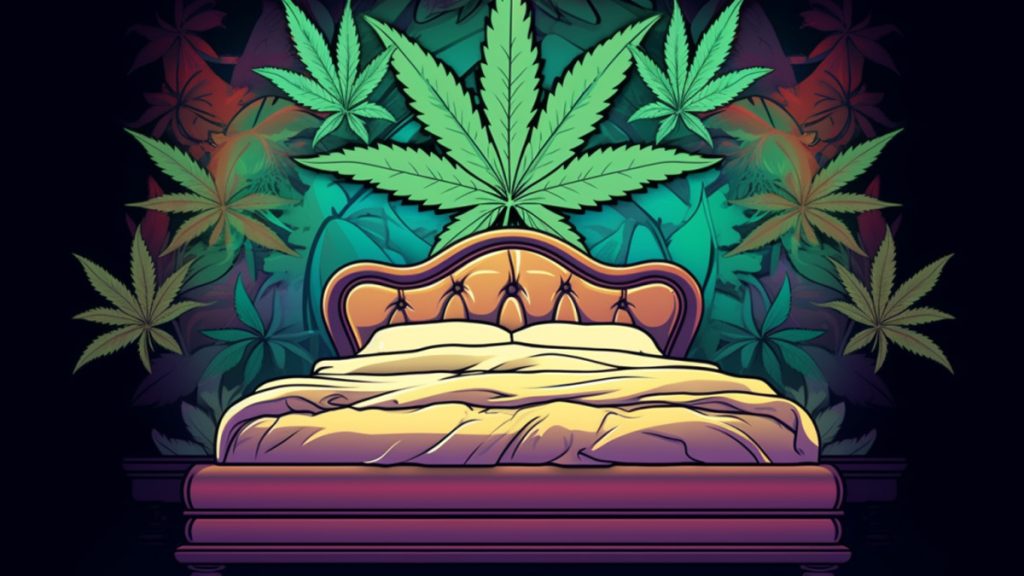
This post is part of our Best Dispensaries in Arizona series, brought to you by SWC Arizona.
Snoozy, snuggly, sensational sleep. There’s nothing better than getting a solid session of zzz’s. Shut-eye gives you wings. It can help you think better, it combats depression, and sleep is critical for performing at your best. Contrarily, not enough sleep can lead to serious health problems, not to mention a bone-crushing lack of energy. If you’re one among 1 in 3 American adults (that’s a whopping 80+ million people) who struggle to clock enough sleep hours – you might be asking yourself, “Does weed help you sleep?” Great question, and we’re here with all the answers you need.

Picture it: You’re tossing, turning, counting sheep, and trying every sleep aid under the moon. Sound familiar? If you’ve struggled with sleepless nights, you know how elusive a good night’s rest can be. But what if there was a natural remedy that could lull you into dreamland? Enter weed – the sublime herb that has gained popularity for its powerful potential to help with everything from anxiety relief to pain management. But does weed help you sleep better? And if so, what happens when you sleep high? We’re here to give you the lowdown on whether or not weed truly holds the key to restful slumber.
Table of Contents
- How Does Weed Help With Sleep?
- Does Weed Make You Sleep Longer?
- What Happens When You Sleep High?
- Is Smoking The Only Way To Use Weed To Help With Sleep?
- Can CBD Be Used To Help With Sleep?
- Best Strains For Sleep
- Is Sativa or Indica Better For Sleep?
- How To Purchase Marijuana
- Key Takeaways On Weed And Sleep
How Does Weed Help With Sleep?
The interesting thing about the ongoing legalization of marijuana is that weed is experiencing a boon in popularity and accessibility. In turn, more and more people are rethinking the uses of pot. It’s not just about getting a buzz anymore. Today, marijuana is crushing the wellness scene as new users discover far-fetching benefits of consuming weed – including using weed for insomnia and getting an awesome sleep sesh.
That said, how does weed help you sleep, exactly? Well, the key lies in two primary compounds called cannabinoids, known as CBD and THC. When your brain receptors interact with these cannabinoids, the effects can be extremely calming, easing you into a “chill zone” that is super-conducive for spectacular sleep.
THC has a psychoactive component that produces that “high” or intoxicating feeling. This component can induce sensations of relaxation and sedation, making it easier to fall asleep. Alternatively, CBD cannabinoids don’t have psychoactive effects, so you don’t get high. But, the effects of CBD on the brain receptors result in a calming effect on the nervous system and relax the physical body. In either case – both cannabinoids are proven to deliver the gift of relaxation that is so crucial to getting decent sleep for optimal functionality and performance.
Does Weed Make You Sleep Longer?
Although marijuana has been around since ancient times, modern science is still catching up with all the mind-boggling details about its effects and benefits. The answer to the question, “Does weed make you sleep longer?” depends a lot on how you respond to cannabis. Studies show that, yes, consuming cannabis has been shown to improve sleep. Additional research shows that weed may help you fall asleep faster and experience deeper sleep. But as we said, weed can manifest different results for different folks.
More research is still underway to precisely determine how well (or how long) weed extends sleeping times. But we do know that cannabis is an excellent tool to smash stress, relieve pain, and elevate your mellow – all factors that can contribute to sweet sleepy-time dreams.
What Happens When You Sleep High?
At this point, you might be wondering how does weed affect sleep? Or, what actually happens when you sleep while high? Great questions. As we mentioned, the effects can vary from person to person and depend on several factors, including the strain of cannabis used and individual tolerance levels.
Many pot users report having a more relaxed and peaceful sleep while high during slumber time. The calming properties of certain strains can help soothe your worries, woes, tension and anxiety. It augers a sense of well-being and tranquility, making it easier to fall asleep. Additionally, some people find that weed helps them sleep longer without frequent wake-ups during a sleep session.
However, using weed before bed can also have a few drawbacks. Some users may experience vivid dreams or nightmares during their high-induced slumber. This could be attributed to the psychoactive effects of THC, which can alter REM (rapid eye movement) sleep patterns.
Another potential side effect is grogginess upon waking up in the morning. While marijuana has been shown to improve sleep quality initially, excessive use or higher THC concentrations might lead to a “hangover” feeling upon awakening. But then again, this isn’t always the case, as some users report feeling fabulous in the morning, experiencing no fuzzy, grizzly hangover symptoms at all.
Because the cannabis experience is unique to everyone, it’s a good idea to go slow when you first start using weed for sleep. Start off with the smallest doses (especially if you are totally new to marijuana consumption) and see how it impacts your sleep.
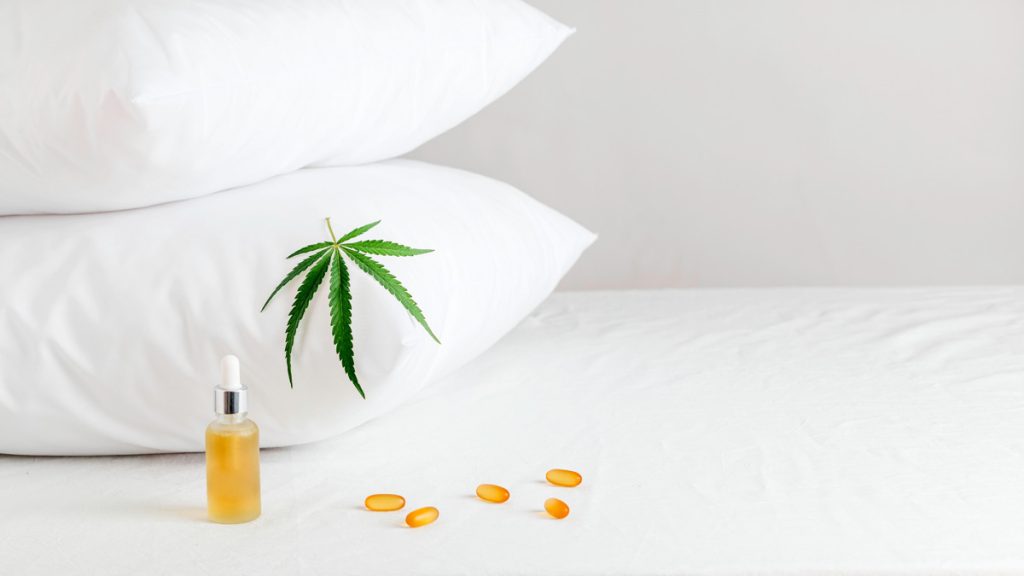
Is Smoking The Only Way To Use Weed To Help With Sleep?
No way! Purveyors of high-quality marijuana have gotten exceedingly clever at transforming the compounds in cannabis into a wild array of end-products. From edibles to oils – you can use weed for sleep without having to smoke it. In fact, people with compromised pulmonary systems often opt to take weed in other forms so as to avoid smoke exacerbating lung issues. So, if you’re not keen on smoking, here are a few other ways you can try weed for better sleep:
Edibles: Edible cannabis products such as yummy gummies, chocolates, or brownies offer a tasty and convenient way to consume weed. They provide long-lasting effects and are known to promote relaxation and induce sleep. Just be aware – the onset of effects may take longer compared to smoking.
Vaping: Vaping involves heating cannabis extracts at lower temperatures than combustion. This method allows you to inhale a gentle vapor without exposing yourself to harmful toxins associated with smoking. Vaping offers quick relief and is ideal for those who prefer a more controlled dosage. You should know, however, that while vaping is less harsh than smoking – it could still be problematic to the lungs.
Oils: Cannabis oils have gained popularity in recent years due to their versatility and ease of use. These oils can be consumed orally by placing drops under your tongue or added to food and beverages. They provide a consistent dosage and are often used for their calming properties before bedtime.
Creams: The topical application of cannabis-infused creams or lotions can help target localized pain or discomfort affecting your sleep quality. These products are absorbed through the skin but do not produce psychoactive effects like other methods mentioned above. While topicals might not put you to sleep per se – they can ease physical pain to make your sleep more manageable.

Can CBD Be Used To Help With Sleep?
You bet it can! CBD is one of the compounds found in marijuana that has gained popularity for its potential therapeutic benefits – including a better drift into dreamland. Unlike THC (tetrahydrocannabinol), which is known for its psychoactive properties and can make you feel high, CBD does not produce any intoxicating effects. This means that CBD can help relax the body for better sleep without making you feel loopy or goofy or have other side effects THC is known for.
So how exactly does CBD help with sleep? Research suggests that it may have a calming, soothing effect on the central nervous system. This prompts relaxation and eases anxiety. In turn, this could potentially lead to better quality sleep and improved insomnia symptoms.
Best Strains For Sleep
Different strains of weed have varying effects on sleep, so finding the best one for your needs is key to getting your snooze bliss on. The two most notable strains are indica and sativa, and we’ll go into more depth about these strains in a minute.
Indica-dominant strains are often recommended for sleep because they tend to have more relaxing and sedating effects. But you should know – not all indica strains will work the same way for everyone. Each person’s body chemistry can react differently to different strains, so you should try different strains to see what works best for you.
You should also be mindful of THC content when selecting a strain. As mentioned, THC is known for its psychoactive properties and can induce feelings of relaxation and drowsiness in higher doses.
Alternatively, if you’re concerned about feeling groggy or foggy-headed in the morning after using cannabis before bed, you may want to try a strain with lower THC levels or go with a strain that is more CBD-dominant.
Is Sativa or Indica Better For Sleep?
Indica is the top recommended strain for sleep for the reasons we mentioned earlier. A quality indica strain delivers a “full body” high – which means you can potentially snuggle up and get your zzz’s due to indica’s impressive relaxation powers. Indica has a higher level of CBD and a lower level of THC, which provides a physical mellow.
So, what about sativa? Sativas generally have higher levels of THC, which is known for its psychoactive effects and uplifting properties. While this might seem counterintuitive for promoting sleep, some people find that the euphoric sensations produced by certain sativas can actually help them wind down before bed.
In general, indica strains are better for sleep, whereas sativas can provide more stimulation and might not be the best for slumber time needs. Then again – as each experience is different, your best bet is to try them both and see which strain works best for you.
Finding the right strain for your sleep might take some experimenting. Sample different types of cannabis products (such as flower, edibles, oils) as well as different strains within each category (indica vs sativa) and take note of your findings. You can also consult with a knowledgeable dispensary representative (known as a budtender) or healthcare professional who can provide valuable guidance in selecting the best strain of sleep for you.
How To Purchase Marijuana
If you’re lucky enough to live in a state that has legalized the use of marijuana, all you have to do is visit a dispensary to purchase weed for sleep. Make sure it is a licensed dispensary and a trusted retailer. We love this dispensary in Arizona for its knowledgeable and helpful budtenders, clean environment, and its impressive line of cannabis products for sleep.
Some states require residents to obtain a medical marijuana card (known as MMJ). If this is your situation, you should see a medical marijuana doctor or your physician. You’ll need a medical condition to warrant an MMJ card. Each state has different policies about which medical conditions apply for medical marijuana use, so check with your state to see if insomnia qualifies you for a medical marijuana card.
Key Takeaways On Weed And Sleep
We hope we’ve fully spoken to all the points linked to the question, “Does weed help you sleep?” But in case we missed something, here is a rundown of the top things you should know about using cannabis for your snoozing objectives:
- Weed can help with sleep by producing a relaxing state, and reducing anxiety, making it easier to fall asleep.
- The effects of weed on sleep duration vary from person to person. While some may find that it helps them sleep longer, others may experience disrupted or shorter sleep cycles.
- Smoking is not the only way to use weed for better sleep. Edibles, vaping, oils, creams, and other forms of consumption are available.
- CBD (cannabidiol), a non-psychoactive compound found in marijuana plants, has shown promise to improve sleep without the intoxicating effects associated with THC (tetrahydrocannabinol).
- Indica strains are generally preferred over sativa strains when using weed for insomnia due to their more sedative properties.
- When purchasing marijuana products for better sleep, consider factors such as THC/CBD content and strain type based on your specific needs and preferences.
- Go to a trusted, licensed dispensary with a helpful staff when you make your purchases to ensure you get the right product for your sleeping goals.
We know you’re smart and savvy, but before signing off, we’ve got to give you this disclosure: If you are considering using any cannabis-related products for better sleep quality or using weed for insomnia, it’s always recommended to consult with medical professionals first. That said, we hope this information on how weed helps with sleep inspires you to try it for yourself. Sweet dreams!


